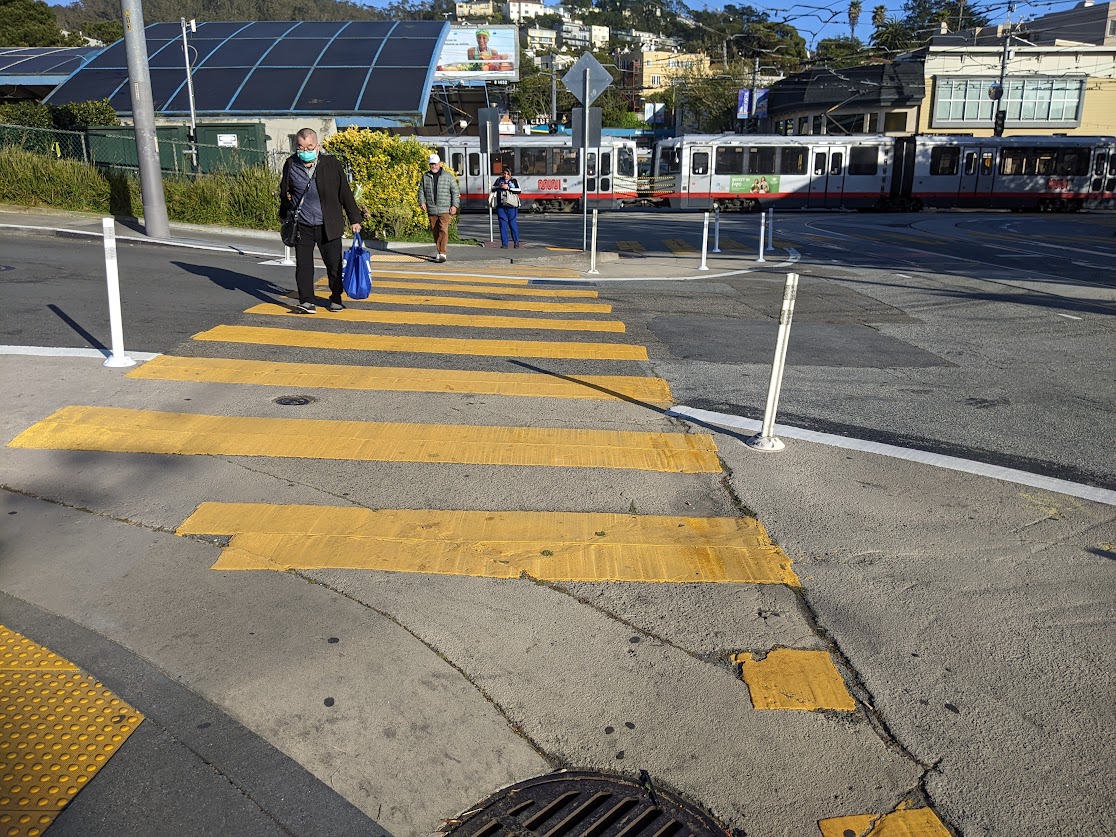Parking Tax Revenue Measure for Muni Makes Its Way to Supervisors
4:35 PM PDT on June 9, 2010
 Photo: Myleen Hollero/Orange Photography
Photo: Myleen Hollero/Orange PhotographyA parking tax increase that could send $19.2 million to the San Francisco Municipal Transportation Agency moved a step closer to the ballot Tuesday, as Supervisor Ross Mirkarimi introduced the measure before his colleagues on the Board of Supervisors.
Mirkarimi made the move at the behest of the SFMTA Board, which voted last week to request that the supervisors introduce the ballot measure on the agency's behalf. It would include a 10-percent increase in the commercial off-street parking tax -- that is, the tax on parking in commercial garages and lots -- and would also close a loophole that allows valet parking services to go untaxed.
"I think it's important in answering the question as to how we are able to generate revenue for the MTA," said Mirkarimi. "This is one consideration I would like us to seriously review. The last two years we have struggled to keep Muni running in the face of historic budget deficits."
Mirkarimi warned that the measure faces competition from other tax measures the supervisors are considering, the rest of which would not directly benefit the SFMTA. Not all of them will make it to the ballot. "I understand that a number of taxes potentially will be submitted for today," he said. "I also believe that in the menu of considerations for taxes, all may not make the final cut."
Several of the supervisors introduced a sweeping SFMTA reform ballot measure last month that would dedicate $40 million from the city's general fund to the SFMTA, but Mirkarimi and others have expressed reservations about that set-aside, so the parking tax could have a future as part of that reform measure as well.
As Streetsblog reported in March, the parking tax may be the most politically viable revenue ballot measure the SFMTA could pursue right now, and many of the city's transit advocates support it for its clear nexus between discouraging parking and increasing funding for Muni service.
"The SFMTA Board of Directors also considered other revenue options, but concurred with the SFMTA Citizens' Advisory Council in preferring measures that generate revenues with a strong nexus to transportation," wrote SFMTA Board Chairman Tom Nolan and Vice Chairman Jerry Lee in a letter to the supervisors [PDF].
But while an increase in the commercial off-street parking tax has the support of the SFMTA Board, some of the supervisors, and transit advocacy groups like Livable City and the San Francisco Transit Riders Union (SFTRU), the Mayor's office was quick to blast the proposal.
"It's another unnecessary tax that will cost the city jobs and hurt the city's businesses at the wrong time," said Tony Winnicker, a spokesperson for the Mayor. "We're already working to reverse the service cuts completely before next July so another November tax measure is unnecessary."
As for the nexus between reducing commuting by car and increasing transit ridership, Winnicker said transit is not an option for everyone. "We absolutely agree that commuters should be discouraged from driving to their jobs in the city and encouraged to take regional transit like BART, Caltrain, Samtrans and AC Transit instead," he said. "But the reality is not everyone who works in the City has that choice, especially when most of those transit agencies are cutting back service deeply."
That puts the Mayor in line with the Chamber of Commerce, which doubts the prospects for such an increase passing muster with voters, and at odds with the SFMTA Board, a body the Mayor's office is often accused of micromanaging.
While the SFMTA may be able to restore the Muni service it cut last month with the help of possible concessions from its unions and funds from the San Francisco County Transportation Authority, the letter from Nolan and Lee to the supervisors notes that the agency has also had to make one-time swaps from capital funding to its operating budget just to prevent further service cuts and fare increases. The current deficits arose in part from a downturn in revenue due to the economic crisis, and deep cuts in state funding for transit.
Even the measure's supporters acknowledge that it faces an uphill battle, as a similar initiative was defeated by a 40-percent margin in 2006 and a poll in March found that just 38 percent of respondents in the city supported even a five-percent increase in the tax, with 12 percent undecided (that poll didn't include any mention of Muni getting 80 percent of the funds, however.) SFTRU's Dave Snyder said the 2006 measure failed in part because it didn't have a strong campaign.
Another key group, SPUR, has endorsed increasing the commercial off-street parking tax to boost Muni funding, but took no position on the 2006 measure since it wasn't guaranteed to be dedicated to the SFMTA. While the SFMTA gets 80 percent of the city's commercial off-street parking tax revenue, the new measure is not fully dedicated to the agency either, so it's not clear if SPUR would ultimately endorse it this time around.
The upside to that, however, is that the measure would need just 50 percent of the vote instead of the two-thirds majority required for SFMTA-dedicated revenue measures. The SFMTA Board still has never introduced such a measure directly on the ballot, but the commercial off-street parking tax measure it's pushing through the Board of Supervisors marks its first foray into aggressively seeking new sources of funding, something the city's voters mandated when they approved 1999's Proposition E, which also created the SFMTA.
The $19 million the SFMTA would receive annually from the measure compares to the roughly $29 million it acted to save annually by cutting 10 percent of Muni service in May. The current commercial off-street parking tax rate of 25 percent would increase to 35 percent if the measure goes forward and is approved.
Stay in touch
Sign up for our free newsletter
More from Streetsblog San Francisco
SFMTA Starts West Portal Outreach
Agency presents plans to block traffic from crossing in front of the train station




